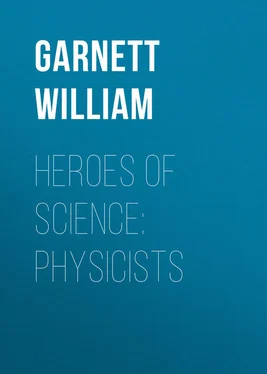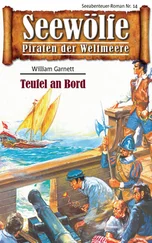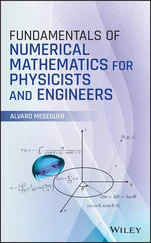William Garnett - Heroes of Science - Physicists
Здесь есть возможность читать онлайн «William Garnett - Heroes of Science - Physicists» — ознакомительный отрывок электронной книги совершенно бесплатно, а после прочтения отрывка купить полную версию. В некоторых случаях можно слушать аудио, скачать через торрент в формате fb2 и присутствует краткое содержание. Жанр: foreign_antique, foreign_prose, на английском языке. Описание произведения, (предисловие) а так же отзывы посетителей доступны на портале библиотеки ЛибКат.
- Название:Heroes of Science: Physicists
- Автор:
- Жанр:
- Год:неизвестен
- ISBN:нет данных
- Рейтинг книги:5 / 5. Голосов: 1
-
Избранное:Добавить в избранное
- Отзывы:
-
Ваша оценка:
- 100
- 1
- 2
- 3
- 4
- 5
Heroes of Science: Physicists: краткое содержание, описание и аннотация
Предлагаем к чтению аннотацию, описание, краткое содержание или предисловие (зависит от того, что написал сам автор книги «Heroes of Science: Physicists»). Если вы не нашли необходимую информацию о книге — напишите в комментариях, мы постараемся отыскать её.
Heroes of Science: Physicists — читать онлайн ознакомительный отрывок
Ниже представлен текст книги, разбитый по страницам. Система сохранения места последней прочитанной страницы, позволяет с удобством читать онлайн бесплатно книгу «Heroes of Science: Physicists», без необходимости каждый раз заново искать на чём Вы остановились. Поставьте закладку, и сможете в любой момент перейти на страницу, на которой закончили чтение.
Интервал:
Закладка:
Ten years ago this library contained between seventy and eighty thousand volumes.
Franklin's success in business was attributed by him largely to his early training. "My circumstances, however, grew daily easier. My original habits of frugality continuing, and my father having, among his instructions to me when a boy, frequently repeated a proverb of Solomon, 'Seest thou a man diligent in his business? he shall stand before kings; he shall not stand before mean men,' I from thence considered industry as a means of obtaining wealth and distinction, which encourag'd me, tho' I did not think that I should ever literally stand before kings , which, however, has since happened; for I have stood before five , and even had the honour of sitting down with one, the King of Denmark, to dinner."
After his marriage, Franklin conceived the idea of obtaining moral perfection. He was not altogether satisfied with the result, but thought his method worthy of imitation. Assuming that he possessed complete knowledge of what was right or wrong, he saw no reason why he should not always act in accordance therewith. His principle was to devote his attention to one virtue only at first for a week, at the end of which time he expected the practice of that virtue to have become a habit. He then added another virtue to his list, and devoted his attention to the same for the next week, and so on, until he had exhausted his list of virtues. He then commenced again at the beginning. As his moral code comprised thirteen virtues, it was possible to go through the complete curriculum four times in a year. Afterwards he occupied a year in going once through the list, and subsequently employed several years in one course. A little book was ruled, with a column for each day and a line for each virtue, and in this a mark was made for every failure which could be remembered on examination at the end of the day. It is easy to believe his statement: "I am surprised to find myself so much fuller of faults than I had imagined; but I had the satisfaction of seeing them diminish."
"This my little book had for its motto these lines from Addison's 'Cato': —
"'Here will I hold. If there's a Power above us
(And that there is, all Nature cries aloud
Thro' all her work), He must delight in virtue;
And that which He delights in must be happy.'
"Another from Cicero: —
"'O vitæ Philosophia dux! O virtutum indagatrix expultrixque vitiorum! Unus dies ex præceptis tuis actus, peccanti immortalitati est anteponendus.'
"Another from the Proverbs of Solomon, speaking of wisdom and virtue: —
"'Length of days is in her right hand; and in her left hand riches and honour. Her ways are ways of pleasantness, and all her paths are peace.'
"And conceiving God to be the fountain of wisdom, I thought it right and necessary to solicit His assistance for obtaining it; to this end I formed the following little prayer, which was prefixed to my tables of examination, for daily use: —
"'O powerful Goodness! bountiful Father! merciful Guide! increase in me that wisdom which discovers my truest interest. Strengthen my resolutions to perform what that wisdom dictates. Accept my kind offices to Thy other children as the only return in my power for Thy continual favours to me.'
"I used also sometimes a little prayer which I took from Thomson's Poems, viz.: —
"'Father of light and life, Thou Good Supreme!
Oh teach me what is good; teach me Thyself!
Save me from folly, vanity, and vice,
From every low pursuit; and fill my soul
With knowledge, conscious peace, and virtue pure;
Sacred, substantial, never-failing bliss!'"
The senses in which Franklin's thirteen virtues were to be understood were explained by short precepts which followed them in his list. The list was as follows: —
"Eat not to dulness; drink not to elevation.
"Speak not but what may benefit others or yourself; avoid trifling conversation.
"Let all your things have their places; let each part of your business have its time.
"Resolve to perform what you ought; perform without fail what you resolve.
"Make no expense but to do good to others or yourself; i. e. waste nothing.
"Lose no time; be always employed in something useful; cut off all unnecessary actions.
"Use no hurtful deceit; think innocently and justly; and, if you speak, speak accordingly.
"Wrong none by doing injuries, or omitting the benefits that are your duty.
"Avoid extremes; forbear resenting injuries so much as you think they deserve.
"Tolerate no uncleanness in body, clothes, or habitation.
"Be not disturbed at trifles, or accidents common or unavoidable.
"Imitate Jesus and Socrates."
The last of these was added to the list at the suggestion of a Quaker friend. Franklin claims to have acquired a good deal of the appearance of it, but concluded that in reality there was no passion so hard to subdue as pride . "For even if I could conceive that I had completely overcome it, I should probably be proud of my humility." The virtue which gave him most trouble, however, was order, and this he never acquired.
In 1732 appeared the first copy of "Poor Richard's Almanack." This was prepared, printed, and published by Franklin for about twenty-five years in succession, and nearly ten thousand copies were sold annually. Besides the usual astronomical information, it contained a collection of entertaining anecdotes, verses, jests, etc., while the "little spaces that occurred between the remarkable events in the calendar" were filled with proverbial sayings, inculcating industry and frugality as helps to virtue. These sayings were collected and prefixed to the almanack of 1757, whence they were copied into the American newspapers, and afterwards reprinted as a broad-sheet in England and in France.
In 1733 Franklin commenced studying modern languages, and acquired sufficient knowledge of French, Italian, and Spanish to be able to read books in those languages. In 1736 he was chosen Clerk to the General Assembly, an office to which he was annually re-elected until he became a member of the Assembly about 1750. There was one member who, on the second occasion of his election, made a long speech against him. Franklin determined to secure the friendship of this member. Accordingly he wrote to him to request the loan of a very scarce and curious book which was in his library. The book was lent and returned in about a week, with a note of thanks. The member ever after manifested a readiness to serve Franklin, and they became great friends – "Another instance of the truth of an old maxim I had learned, which says, ' He that has once done you a kindness will be more ready to do you another than he whom you yourself have obliged .' And it shows how much more profitable it is prudently to remove, than to resent, return, and continue inimical proceedings."
In 1737 Franklin was appointed Deputy-Postmaster-General for Pennsylvania. He was afterwards made Postmaster-General of the Colonies. He read a paper in the Junto on the organization of the City watch, and the propriety of rating the inhabitants on the value of their premises in order to support the same. The subject was also discussed in the other clubs which had sprung from the Junto, and thus the way was prepared for the law which a few years afterwards carried Franklin's proposals into effect. His next scheme was the formation of a fire brigade, in which he met with his usual success, and other clubs followed, until most of the men of property in the city were members of one club or another. The original brigade, known as the Union Fire Company, was formed December 7, 1736. It was in active service in 1791.
Читать дальшеИнтервал:
Закладка:
Похожие книги на «Heroes of Science: Physicists»
Представляем Вашему вниманию похожие книги на «Heroes of Science: Physicists» списком для выбора. Мы отобрали схожую по названию и смыслу литературу в надежде предоставить читателям больше вариантов отыскать новые, интересные, ещё непрочитанные произведения.
Обсуждение, отзывы о книге «Heroes of Science: Physicists» и просто собственные мнения читателей. Оставьте ваши комментарии, напишите, что Вы думаете о произведении, его смысле или главных героях. Укажите что конкретно понравилось, а что нет, и почему Вы так считаете.












